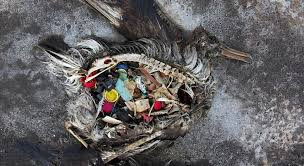Pledge to go plastic free in July
We all know the devastating damage caused by single use plastic, and pictures of dead birds with their bellies full of plastic bottle caps, cigarette lighters, a toothbrush, and more plastic waste are very commonplace. Reducing plastic consumption is not always an easy change to make but it is incredibly satisfying. The abundance of choice in recent years has made the process of shopping plastic free easier and the proliferation of zero waste stores has increased the proportion of things you can buy locally and without any plastic waste. Sometimes you may pay more, but for a premium product which supports a real person, not a faceless corporate entity.
The transition isn’t easy; when you start digging into the products you buy, you will find that an alarming amount come in plastic packaging or are either partially or fully made with virgin plastic. Not only does this speak to just how big of a problem this is for our environment, but it also means that it will take some time for you to go fully plastic-free. Plastic has proliferated because it’s easy and cheap and hence it takes a lot to commit to plastic free living, but the benefits of living plastic-free are so profound that it makes sticking to the habit more than worth it. A plastic free July is a really good place to start and learn about how to embark on this process.
By living with less plastic, you’re making a positive impact on our planet right now and you’re simultaneously making it better for future generations. One person living with less plastic isn’t going to make a global impact, but if that one person can inspire another person, and that person inspires two more people, and those people go on to inspire other people to make the change, then we’ve suddenly started a ripple effect that snowballs into something very impactful.
When you begin, don’t throw out all your plastic: the plastic you toss ends up in a landfill and harms the environment. So if it’s in your home and it’s being put to good use (and it’s a safe plastic product) then it’s better off staying there. The key is to not purchase any new plastic products. These are the items you will need to find replacements for if they are absolutely necessary for you to use.
In order to make the change, you need to build a habit of living with less plastic. Habits allow you to continue a behavior for an extended period of time. They can become almost automatic (like your habit of living with plastic right now). If you dive in head first and can’t keep it up, that habit will never form and you will go back to your old behaviors. So you don’t have to go 100% plastic-free immediately. The best thing for most people to do is to take it slowly, one step at a time. Make exceptions when you need to – many things are only sold in plastic packaging and you have to be flexible in your approach. Be aware of greenwashing campaigns – many brands and products sell ‘green’ versions which are no more than marketing gimmicks.
Some steps to help you begin:
- Use reusable bags whenever you go shopping.
- Identify which products you buy containing plastic and choose the three easiest products to replace. Small wins help habits stick and some products are easier to replace than others.
- Start using a reusable coffee cup and a reusable drink bottle.
- Use bar soap, plastic free toilet paper and bring back the handkerchief!
- Go to a zero waste store or pop up to buy some bulk items in your own containers. When everyone scrambled to find flour for the million baking projects over lockdown my local store had plenty and that helped me convert a few friends to trying out zero waste shopping too!
- Look for a community supported agriculture (CSA) organisation near you. I love gardening and fresh local organic produce so my local CSA ties both of these together brilliantly. Different CSAs work slightly differently, depending on the governing principles behind a particular scheme and the needs of the communities they seek to serve. Basically, however, the idea behind CSA is for consumers to financially commit themselves to supporting the farm and providing a fair income to the growers. In return for this commitment, not only will consumers receive a weekly box of produce directly from the farm, they will also have opportunities to be more involved with the actual growing of that food and have direct access to the land from where that food comes. As the emphasis is always on the health, fertility, and sustainability of the land and the surrounding environment, they can also be guaranteed a high level of commitment to ecological stewardship in return for their continued support.
- Take a trip to the local market if it’s open. For produce that does not come in my CSA box, the local farmers market is a nice place to get what I need. The local baker’s fresh pastries on a Saturday morning are an added bonus! This is also where a local coffee roaster sells his ethically sourced coffee and the whole set up helps me support real people without the effort of travelling to individual shops.
Good luck! (If you have any questions I’m happy to try and help!)







